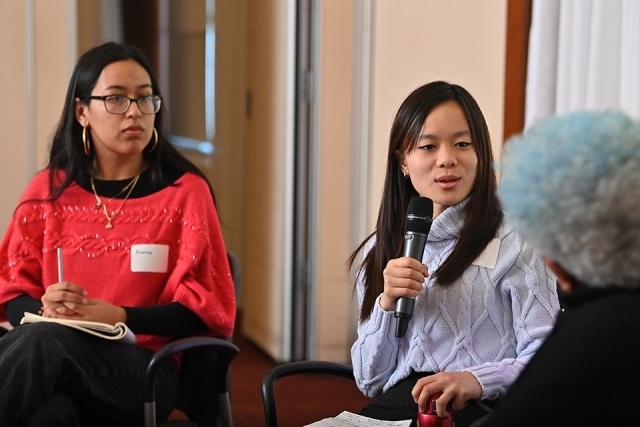
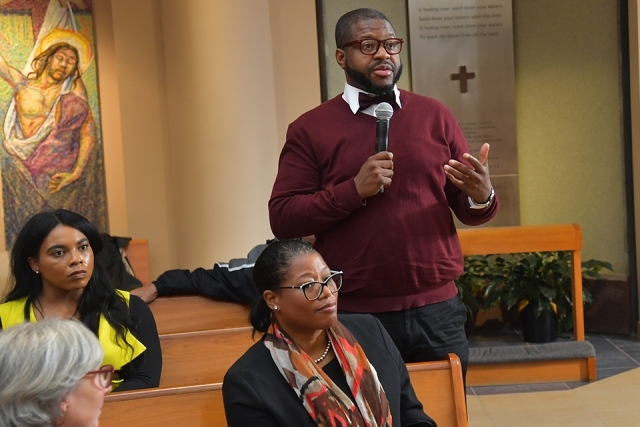
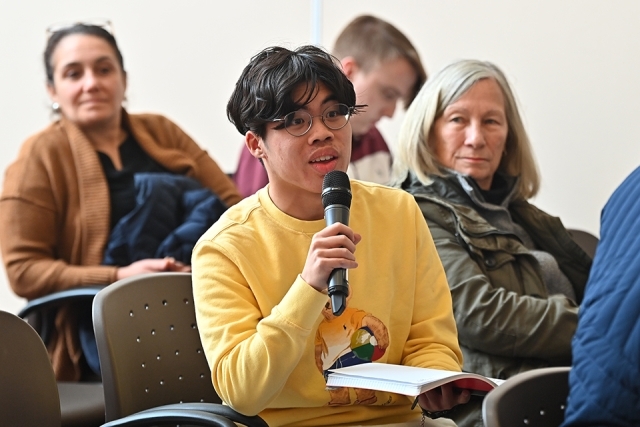
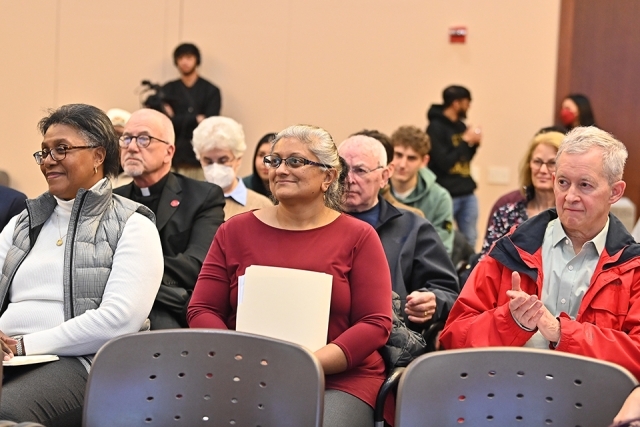
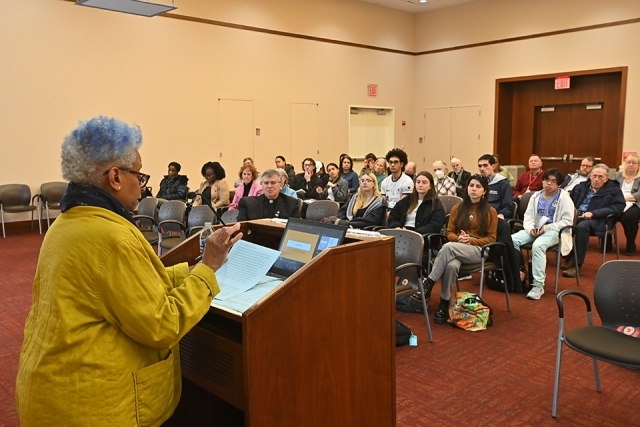
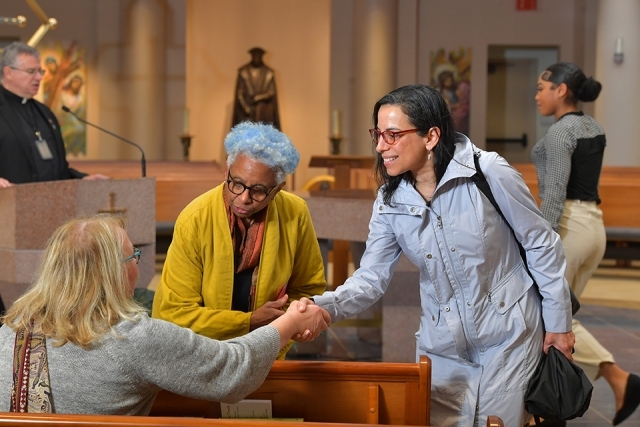
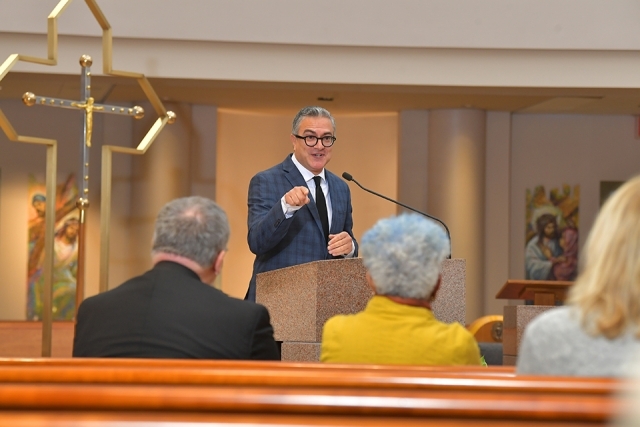
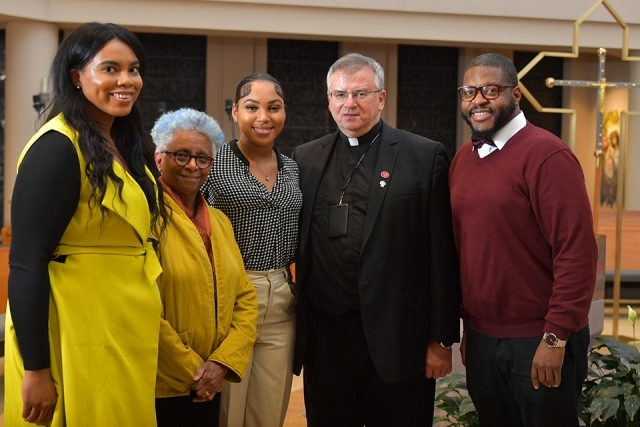
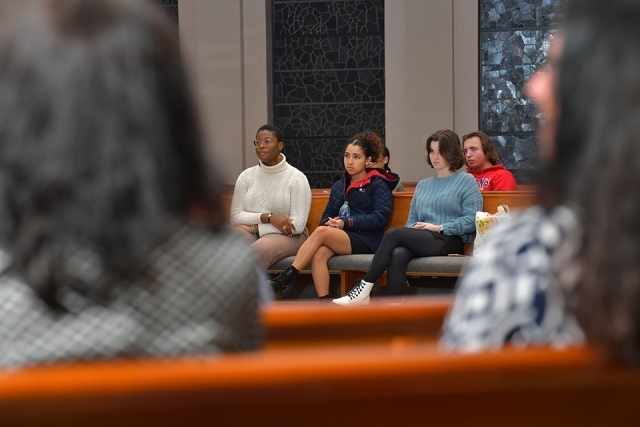
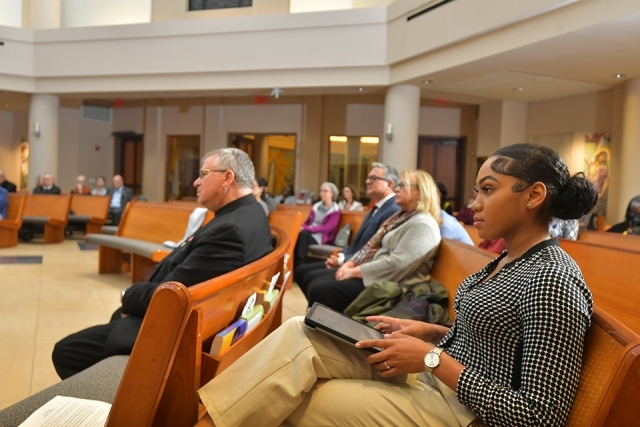
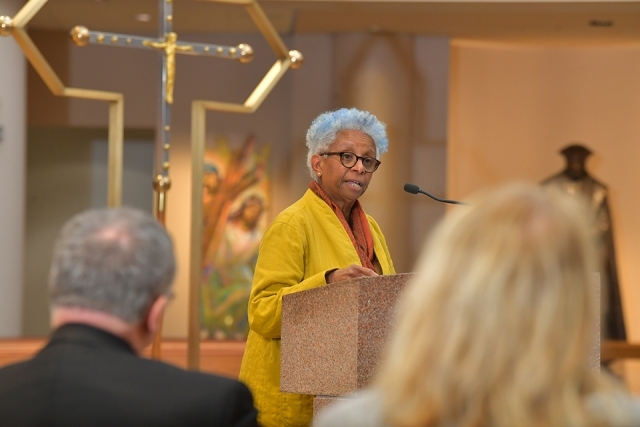











All of us have a stake in whether or not the Church, as a corporate body, is willing and able to stand as a prophetic witness against racism in our time.
Shawn Copeland, Ph.D., Professor Emerita of Systematic Theology, the Department of Theology and the Program in African and African Diaspora Studies at Boston College, made that exhortation during her final Vincentian Chair of Social Justice lecture of the 2022–23 academic year, “Prophetic Faith and Social Reform.”
The lecture was held on March 30 in the D’Angelo Center on the Queens, NY, campus. Dr. Copeland is this year’s holder of the St. John’s University Vincentian Chair of Social Justice, and the theme of her series was “Visions of Freedom: A Political Theology for Our Time.”
“Dr. Copeland’s classic understanding of the political in her lectures invited us all to examine the ways in which we are complicit with injustice or advocates for a more inclusive and just society,” said Rev. Aidan R. Rooney, C.M., M.Div., M.Th. ’78NDC, Executive Vice President for Mission. “I, for one, will reexamine our role as an institution as we interact with the communities oppressed by poverty in our region. There is much to be done on and off campus.”
The Declaration of Independence, Dr. Copeland noted, identifies God as the first principle of nature: a sovereign over the collective political society, as well as a biblical God who creates individual human beings, endowing them with equality. “Living in a certain kind of political system formed and produced a certain kind of person,” she observed. “Only in the instance of the best system of government will the good woman or man and the good citizen be one in the same.”
“One of the gravest errors of our time,” Dr. Copeland asserted, “is the dichotomy of faith, which many profess, and their daily lives.”
No one has incarnated the meaning of prophetic faith like the Rev. Dr. Martin Luther King Jr. “A century ago, many Americans lived under legal segregation, and in many ways we still do.”
Dr. King held that segregation of any kind held a “double contradiction” in this country, Dr. Copeland observed. “It violated democratic principles and its religious heritage.”
Segregation betrayed this country’s most noble ideals of liberty and justice, she said. “However, Dr. King maintained that the religious contradiction of segregation is the worst. He said, ‘If we are to remain true to the Gospel of Jesus Christ, we cannot rest until segregation and discrimination are banished from every area of American life.’”
Prior to the lecture, a group of St. John’s University faculty and administrators shared dinner with Dr. Copeland in the D’Angelo Center for a more in-depth discussion of the topics presented in her lecture.
“Dr. Copeland’s lecture series challenges us to be more sensitive to those we encounter as we navigate this world in search of the same thing: freedom,” observed Aliya E. Holmes, Ph.D., Associate Professor of Educational Technology, Department of Curriculum and Instruction.
“It is on this journey that we realize that despite our starting points or differences, we have the same goal—to achieve and live the American Dream. Dr. Copeland reminded me that freedom is shaped by the limits of our vision, and we all have the power to access it even if we are walking on a tightrope.”
Over her series of talks, Dr. Copeland proved herself a great theologian and communicator, noted Rev. Patrick J. Griffin, C.M. ’13HON, Executive Director, Vincentian Center for Church and Society. “From the perspective of political theology, she intended to explore competing and changing visions that have shaped our national life (i.e., freedom, social life, civic belonging, religious, and personal identity).”
Fr. Griffin added, “Her concluding presentation gave special attention to the issues of religion and education that touch upon the identity of St. John’s in a particular way. It offered some significant challenges from a believing scholar. We are grateful.”
Related News
St. Thomas More Church at St. John’s Featured on “NYC Catholic Church Tours”
Adam Llorens is an emerging Catholic social‑media content creator and storyteller whose passion for sacred spaces, faith, and community informs and inspires a growing online audience. Mr. Llorens, a...
Vincent’s Table Brings Dignity and Support to Students Facing Food Insecurity
Food insecurity among US college students is a rising problem. About 3.8 million college students experienced food insecurity in 2020 and it has only grown steadily worse.
Leading with Heart: Lucy A. Pesce Recognized for Changing Lives at St. John’s
Commitment to the Vincentian mission shone brightly last week when Lucy A. Pesce, Executive Director for Mission Initiatives at St. John’s University, was honored by Depaul USA with the Dax Champion Award for her unwavering leadership and compassion. Ms. Pesce’s recognition highlights not only her personal dedication but also the University’s broader mission to uplift and serve individuals experiencing homelessness.
